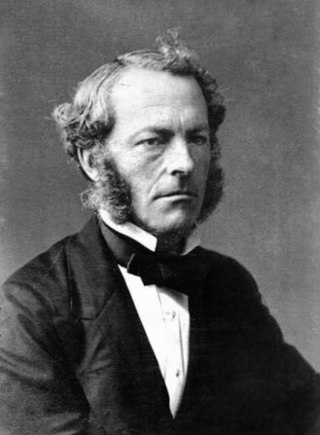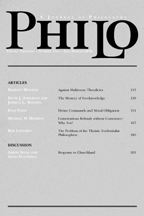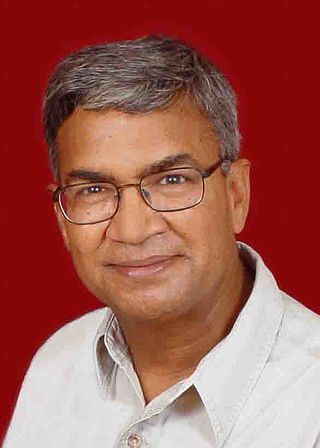Histories and Addresses of Philosophical Societies (HAPS) is a series published by Rodopi Publishers and edited by Richard T. Hull, State University of New York at Buffalo as part of the Value Inquiry Book Series. HAPS publishes the major addresses of philosophical societies along with any intellectual and biographical context that contributes to the material. HAPS is co-sponsored by the Conference of Philosophical Societies.

Pragmatism is a philosophical tradition that views language and thought as tools for prediction, problem solving, and action, rather than describing, representing, or mirroring reality. Pragmatists contend that most philosophical topics—such as the nature of knowledge, language, concepts, meaning, belief, and science—are all best viewed in terms of their practical uses and successes.

Guillaume Thomas François Raynal, also known as Abbé Raynal, was a French writer, former Catholic priest, and man of letters during the Age of Enlightenment.

Sir George Gabriel Stokes, 1st Baronet, was an Irish physicist and mathematician. Born in County Sligo, Ireland, Stokes spent all of his career at the University of Cambridge, where he was the Lucasian Professor of Mathematics from 1849 until his death in 1903. As a physicist, Stokes made seminal contributions to fluid mechanics, including the Navier–Stokes equations; and to physical optics, with notable works on polarization and fluorescence. As a mathematician, he popularised "Stokes' theorem" in vector calculus and contributed to the theory of asymptotic expansions. Stokes, along with Felix Hoppe-Seyler, first demonstrated the oxygen transport function of haemoglobin, and showed colour changes produced by the aeration of haemoglobin solutions.

Nicholas Rescher was a German-born American philosopher, polymath, and author, who was a professor of philosophy at the University of Pittsburgh from 1961. He was chairman of the Center for Philosophy of Science and chairman of the philosophy department.

The American Philosophical Association (APA) is the main professional organization for philosophers in the United States. Founded in 1900, its mission is to promote the exchange of ideas among philosophers, to encourage creative and scholarly activity in philosophy, to facilitate the professional work and teaching of philosophers, and to represent philosophy as a discipline. The APA's governance has included Robert Audi, Jaegwon Kim and Ruth Barcan Marcus.

The Cambridge Philosophical Society (CPS) is a scientific society at the University of Cambridge. It was founded in 1819. The name derives from the medieval use of the word philosophy to denote any research undertaken outside the fields of law, theology and medicine. The society was granted a royal charter by King William IV in 1832. The society is governed by an elected council of senior academics, which is chaired by the Society's President, according to a set of statutes.

Philo was a peer-reviewed academic journal published by the Society of Humanist Philosophers from 1998 to 2014. While it has now ceased publication, it was published at the Center for Inquiry with assistance from Purdue University. It focused on the discussion of philosophical issues from an explicitly naturalist perspective. The journal published articles, critical discussions, review essays, and book reviews in all fields of philosophy, and particularly invited work on the philosophical credentials of both naturalism and various supernaturalist alternatives to naturalism. Electronic access to the journal is provided by the Philosophy Documentation Center.
John Kells Ingram was an Irish mathematician, economist and poet who started his career as a mathematician. He has been co-credited, along with John William Stubbs, with introducing the geometric concept of inversion in a circle.
Jorge J. E. Gracia was a Cuban-born American philosopher who was the Samuel P. Capen Chair, SUNY Distinguished Professor in the Department of Philosophy and Department of Comparative Literature in the State University of New York at Buffalo. Gracia was educated in Cuba, the United States, Canada, and Spain, and received his Ph.D. in Medieval Philosophy from the University of Toronto.
The World Congress of Philosophy is a global meeting of philosophers held every five years under the auspices of the International Federation of Philosophical Societies (FISP). First organized in 1900, these events became firmly established after the Second World War. Each World Congress is sponsored by one of the member societies in a different country, which assumes responsibility for the organization of that Congress. The purpose of these events is to contribute to the development of professional relations between philosophers of all countries, promote philosophical education, and contribute to the impact of philosophical knowledge on global problems. The 24th World Congress of Philosophy was held in Beijing in August 2018. The 25th World Congress of Philosophy will take place in Rome in 2024.

Barry Stroud was a Canadian philosopher and professor at the University of California, Berkeley. Known especially for his work on philosophical skepticism, he wrote about David Hume, Ludwig Wittgenstein, the metaphysics of color, and many other topics.
The Glasgow Media Group, is a group of researchers formed at the University of Glasgow in 1974, which pioneered the analysis of television news in a series of studies. Operating under the GUMG banner, academics including its founders Brian Winston, Greg Philo and John Eldridge have consistently argued that television news is biased in favour of powerful forces such as governments, transnational corporations and the rich over issues like climate change, conflicts such as Israel/Palestine, Northern Ireland, welfare benefits, economics and refugees.
The William James Lectures are a series of invited lectureships at Harvard University sponsored by the Departments of Philosophy and Psychology, who alternate in the selection of speakers. The series was created in honor of the American pragmatist philosopher and psychologist William James, a former faculty member at that institution. It was endowed through a 1929 bequest from Edgar Pierce, a Harvard Alumnus, who also funded the prestigious Edgar Pierce Chair in Philosophy and Psychology. Pierce stipulated that the delivered lectures be open to the public and subsequently published by the Harvard University Press. The program was initiated in 1930 and has continued to the present. Its invited lecturers have included some of the most influential thinkers of the 20th century. In some cases, the selection of lecturer has generated considerable controversy. It is not to be confused with the William James Lectures on Religious Experience, which is a different lecture series conducted in the Harvard Divinity School.
The Metaphysical Society of America (MSA) is a philosophical organization founded by Paul Weiss in 1950. As stated in its constitution, "The purpose of the Metaphysical Society of America is the study of reality." The society is a member of the American Council of Learned Societies.

Hyenas: a Hap and Leonard Novella is a novella written by American author Joe R. Lansdale. It is the tenth book in the Hap and Leonard series of works by Mr. Lansdale. It contains the novella Hyenas, and the short story "The Boy Who Became Invisible."

Dead Aim is a crime/suspense novella written by American author Joe R. Lansdale. It is the eleventh book in the Hap and Leonard series featuring Lansdale's longtime protagonists Hap Collins and Leonard Pine.
Mian Mohammad Sharif TI was a Pakistani philosopher, Islamic scholar, and college professor. He is noted for his work in analytical philosophy and pioneered the idea of Muslim philosophy. His work was published in international philosophical journals.

Anil K. Gupta is an Indian-American philosopher who works primarily in logic, epistemology, philosophy of language, and metaphysics. Gupta is the Alan Ross Anderson Distinguished Professor of Philosophy at the University of Pittsburgh. He is also a Fellow of the American Academy of Arts and Sciences. His most recent book, Conscious Experience: A Logical Inquiry, was published by Harvard University Press in 2019.

The following bibliography of Alexander Bryan Johnson provides a chronological list of the published works of English-American philosopher Alexander B. Johnson (1786–1867). Many of Johnson's works can be accessed free via Open Library or other online repositories.